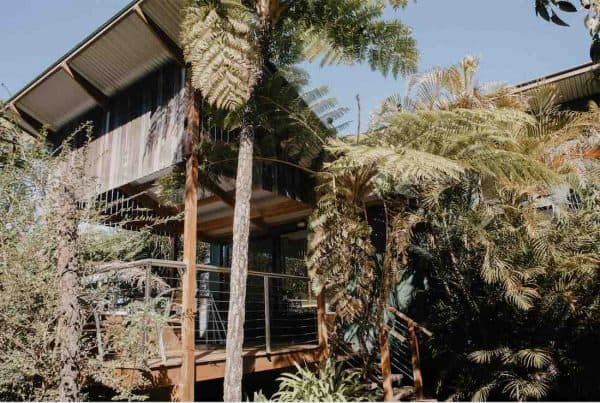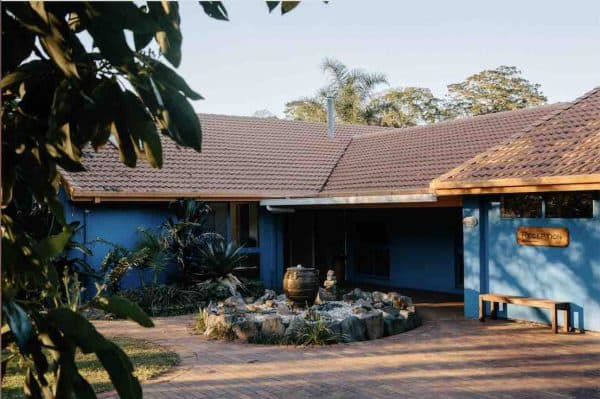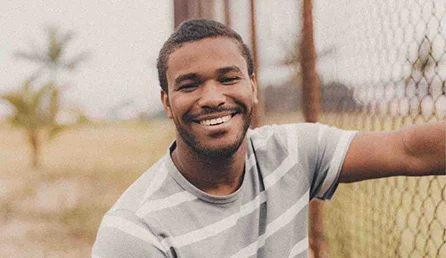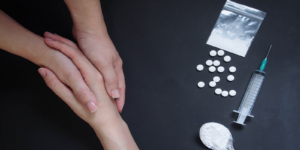Private Health Retreats: Drug Rehab Programs
Drug Addiction
According to the World Health Organisation, drug addiction (either prescription or illicit) is the most stigmatised condition of labelled mental illnesses. This is why private drug rehab programs like in Sydney, are increasingly being sought after for their discretion
Addiction is a chronic condition characterised by drug seeking and use that is compulsive, or difficult to control, despite harmful consequences. The initial decision to take drugs is voluntary for most people. But repeated drug use can lead to brain changes that challenge an addicted person’s self-control and interfere with their ability to resist intense urges to take drugs (drugabuse.gov). These changes in the brain can be persistent – which is why drug addiction is considered susceptible to triggers. This is where people in recovery from drug use conditions are at increased risk for returning to drug use even after years of not taking the drug.
Using any type of recreational drug – be it nicotine, street drugs or medicine – can affect you emotionally, physically, socially and/or financially.
The compounding nature of recreational drug use has affected thousands of Australians, impacting those who take them and those closest to drug users.
Addiction is a physical and/or psychological need to use a substance, often caused by regular continued use. This means that while we might use substances to relax or have fun, they can quickly become a coping mechanism. They can also become a means to dull emotional/physical pain. In reality, drug addiction is a complex condition, and quitting usually takes more than good intentions or a strong will. Drugs change the brain in ways that make quitting hard, even for those who want to.
Fortunately, drug rehab programs know more than ever about how drugs affect the brain. And have found treatments that can help people recover from drug addiction and lead productive lives.

To assist with your own or a loved one’s screening of your condition it is important that you are aware of methods that may help. Palladium Private have created the Drug Use Disorders Identification Test (DUDIT) to provide a gauge of your current condition.
Symptoms of Drug Addiction
Some substances are more addictive than others. Depending on the individual, some are more likely to become addicted to a substance. This depends on mental, physical and lifestyle factors. If you think you or someone you know might be developing an addiction, signs to look out for include:
Regular substance use
Missing work and becoming unreliable
Having trouble sleeping
Losing weight
Experiencing blackouts
Experiencing rapid mood changes
Having trouble concentrating or making decisions
Avoiding people who don’t use drugs
Behaving dishonestly with friends and family
Being in debt and spending money you can’t afford
Having relationship problems
Participating in dangerous activities due to drug use
Drug Abuse and how it effects the Brain
Most drugs affect the brain’s “reward circuit,” causing euphoria. They can also flood it with the chemical messenger dopamine (lifeline.org). A properly functioning reward system motivates a person to repeat behaviors needed to sustain a healthy lifestyle. This includes eating and spending time with loved ones. Surges of dopamine in the reward circuit cause the reinforcement of pleasurable but unhealthy behaviours like taking drugs. This can lead people to repeat the behaviour again and again.

Gradually the brain adapts by reducing the ability of cells in the reward circuit to respond to it. This reduces the high that the person feels each time. Especially compared to the high they felt when first taking the drug—an effect known as tolerance (drugabuse.gov).
They might take more of the drug to try and achieve the same high. These brain adaptations often lead to the person becoming less and less able to derive pleasure from other things they once enjoyed, like food, sex, or social activities.
Long-term use also causes changes in other brain chemical systems and circuits as well, affecting functions that include:
Learning
Judgment
Decision-making
Stress
Memory
Behavior
These changes in a user’s brain chemistry can lead to major alterations in mood and activities. They can even eventually transform this dependency into a mental condition.
It can be hard to tell which condition came first – drug addiction or mental illness. Having a mental illness can make a person more likely to abuse drugs. This can make their symptoms feel better in the short-term. Using drugs can also make the symptoms of mental illnesses worse and make treatment less effective (SANE).
Types of Drugs
There are three main kinds of drugs. Each of which can cause different physical and mental reactions, and effect individuals differently. These are also characterised by drug rehab programs like in Brisbane.
Depressants
Heroin, cannabis, alcohol and other depressants slow your breathing and heart rate down. In small quantities can make you feel happy and relaxed.
But while they can provide a short-term sense of pleasure, they also bring on feelings of anxiety or depression in some people. Regular long-term use can negatively affect your mood, making it harder to cope with everyday life.

Stimulants
Speed, ice, cocaine, ecstasy and other stimulants increase your heart rate, body temperature and blood pressure. It can give you a temporary ‘buzz’ which makes you feel more confident, motivated and energetic.
However, they can also have a number of side effects including stomach cramps, headaches, dizziness and feelings of anxiety, paranoia and aggression.
Hallucinogens
LSD, ketamine, magic mushrooms and other hallucinogens cause you to hear and see things that aren’t really there.
As a result of hallucinogens, many experience unpleasant changes to their reality as a result. This can cause anxiety, depression, paranoia and psychosis in those susceptible to mental health problems.
The effect each of these types of drugs has on the user depends on their BMI and the amount and intake regularity. All three have the potential to be both physically and mentally addictive.
Drug Rehab Programs and Treatment
Addiction is treatable and can be successfully managed. People who are recovering from an addiction will be at risk for relapse for years and possibly for their whole lives. Research shows that combining addiction treatment medicines with behavioural therapy ensures the best chance of success for most patients.
Treatment approaches can be tailored to each patient’s drug use patterns. With any co-occurring medical, mental, and social problems mitigated to lead to continued recovery. These approaches include full immersion residential programs of between two to five weeks. During this stay, residents benefit from psychological treatments. These are tailored daily activities and freedom from any triggers or addictive substances.
Residential treatment also takes a holistic approach involving a combination of three daily components.
These are mental/emotional therapy, physical/flexibility, and relaxation/detoxification. This approach is known as BioPsychoSocial.
This is supported by experienced people who facilitate long lasting positive change to your mental state. An example of your team at Palladium Private will often include psychologists, counsellors, personal trainers, massage therapists, mindfulness trainers and more.
Residential Drug Rehab Programs Compared To The 12 Step Program
There are many residential programs for various addictions and compulsive behaviours. These range from those that focus on Cognitive Behavioural Theory (CBT) to Interpersonal Psychotherapy. All emphasise steps to reduce the stigma often associated with rehabilitation. A certain stigma as conveyed by Hollywood and segments of the 12 Step Program.

Some aspects of programs that require surrendering to a higher power can be extreme. They encourage you to share your faults, be labelled an addict and then repent for your addiction.
Residential Retreat Programs, such as Palladium, do not view clients, nor do they label clients as addicts.
This directly coincides with the residential retreat view on drugs and alcohol. Instead of viewing drug and alcohol addiction in this light (as taught in the 12 Step Program), Palladium look at the relationship that the client has to drugs and alcohol. Then seek to understand why such addiction has occurred. This requires deeper and more intensive psychotherapy in a retreat setting. And provides the ability to uncover the root cause of the mental health condition. Palladium focus less on the alcohol and/or drug use which is viewed as a coping strategy the person employs.
Recovery is a lifelong process. Palladium provides long-term tools and takeaways to help participants figure out what works best. In fact, most participants often revisit some takeaways or update activities according to their own preferences.
Residential treatment combines professional help, a trigger-free environment and insightful activities. These seek to help one achieve and maintain freedom from substance abuse. These three factors seek to provide a consistent and safe environment. One that promotes sharing individual journeys and empathising with others’ progress.

The use of support people and community groups is present in both the 12 Step Program and Residential Retreats. This helps create a shared sense of community that helps keep addiction in check. This allows each individual to realise their actions, and share their journey and progress with others in similar situations.
Supportive aspects of the 12 Step Program might work for some. Palladium still seek to help clients through a more understanding and empathetic method of rehabilitation. The 12 Step Program has its merits. But, the Palladium Private Method seeks to provide thoroughly researched immersion techniques. These aim to better understand the condition, not label it as a one-dimensional illness.
Residential Retreats For Drug Rehab
Drug rehabilitation facilities, use a reality-based mindset technique. This is based on Cognitive Behavioral Theory (CBT), Acceptance and Commitment Therapy (ACT), Gestalt and Rational Emotional Behaviour Therapy. This educational program is delivered in a retreat environment. One that focuses on the holistic healing of the mind and body.
Residential detox solutions use steps to promote consistent recovery.
Below are Palladium Private’s four major rehab components:
- During your pre-program assessment, you may be deemed to require a withdrawal program due to existing alcohol and/or drug use. Your program may start with a short stay 5-14 days at a local registered private hospital. Once completed you will then progress to the retreat to commence your Palladium Program. Palladium will commence a general check-up with a local GP once onsite. This is to review medication and undertake tests to identify areas that need addressing.
- Some clients will require a chaperone at night for their first three nights at Palladium, if needed. This is to make sure you feel safe and supported as you integrate with the program.
A nutritious diet is further provided. This will supply the body with the essential components it needs for detoxification. Gentle exercise and massage will assist in removing toxins from the body.
- You will be provided with a detox box, steam room and mineral hot pool. This is in conjunction with the psychological therapies we select for each client.

Addiction is a coping mechanism. Behind the addiction is the root cause that creates the mental conditioning. Palladium’s qualified therapists examine the core beliefs or trauma that led you to think the way you do. These include factors that led to your addiction. Without examining these beliefs, you may return to former habits when under stress and pressure. This might start the cycle of rehab and detox once again.
A key factor in our clients’ success, is their desire and commitment to making a change in their life. If they are willing and able to learn and apply the steps and techniques, we give them, there will be a positive, permanent change in their life.
Please note that Palladium Private does not offer programs for clients who solely wish to lower or cease their prescription drugs. Clients need to stay on their medication until a physician advises otherwise. This can be discontinued before our program (with time allowed for underlying effects to surface and be controlled). Or stay on their medication throughout their program. If clients reduce their medication as a by product of their program, this is also a positive outcome. We may see clients lower or cease their medication during or after their residential program. This is completed in consultation with a GP and never recommended or advised by Palladium staff.



